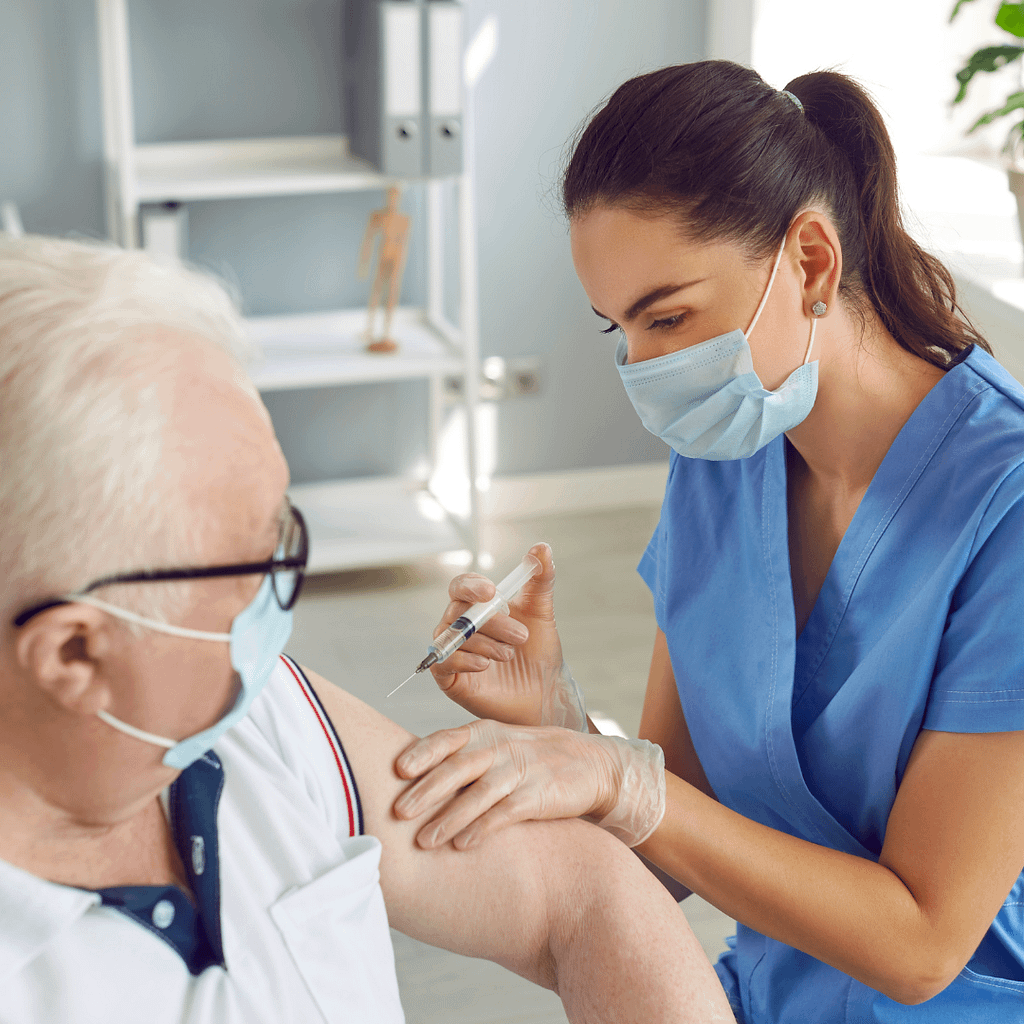In 2023, vaccines for respiratory syncytial virus (RSV) became available for the first time, providing protection against a virus that causes tens of thousands of hospitalizations and deaths among older adults every year. For caregivers, understanding the early results and challenges in RSV vaccine uptake can help in making informed decisions for their loved ones.

At Parenting Our Parents (POP), we believe in providing caregivers with up-to-date information on health developments like the RSV vaccine. Here’s a closer look at what early results tell us about the vaccine’s uptake and the need for targeted outreach to ensure that it benefits all older adults.
RSV Vaccine Uptake: A Mixed Start #
In November 2023, AARP conducted a survey to understand how many older adults were embracing the RSV vaccine during its first season of availability. Early results show that 11% of respondents aged 60 and older reported receiving the vaccine. While this number may seem low, it is an improvement compared to the early uptake of other vaccines, such as the shingles vaccine.
However, there are significant disparities in vaccine uptake across different demographics:
- White respondents were nearly twice as likely to get vaccinated (13%) compared to Black and Hispanic respondents (6% and 7%, respectively).
- Urban residents, those with higher incomes, and those with a college education were more likely to be early adopters of the RSV vaccine.
These patterns echo the early adoption trends seen with the shingles vaccine, which also initially had higher uptake among white, educated, and higher-income populations. Caregivers should be aware of these trends as they may reflect the challenges in accessing or trusting new healthcare interventions for different groups.
Increasing Awareness of the RSV Vaccine #
The good news is that awareness of the RSV vaccine has grown significantly. In July 2023, just 36% of adults 60 and older had heard of the vaccine, but by November 2023, that number had jumped to 74%. This increase in awareness is a positive step, but it doesn’t always translate into action. Many adults remain uncertain about whether they should get vaccinated, with some citing reasons such as:
- Not needing it (39%)
- Their healthcare provider not recommending it (28%)
- Distrusting information about the vaccine (27%)
Older adults living in non-metropolitan areas were especially likely to believe they didn’t need the vaccine, with 56% holding this view compared to 38% of those living in urban areas.
Challenges in Vaccine Uptake #
For caregivers, these findings highlight the importance of discussing the RSV vaccine with their loved ones and healthcare providers. Nearly half (48%) of unvaccinated respondents reported being “not at all likely” or “not very likely” to get the vaccine. This sentiment was higher among Black and Hispanic respondents, as well as those with less formal education. Addressing concerns about the vaccine’s necessity and safety will be key to improving uptake in these populations.
Lessons from the Shingles Vaccine #
The early uptake of the RSV vaccine may seem slow, but it outpaces the initial uptake of the shingles vaccine. When the first shingles vaccine (Zostavax) was introduced in 2008, only 7% of adults 60 and older received it. By 2021, that number had risen to 41%. The demographic and socioeconomic factors influencing early adoption of both vaccines are strikingly similar, suggesting that targeted outreach efforts are needed to bridge the gap in vaccine access.
The Role of Targeted Outreach #
The early RSV vaccine results reveal that older adults who are most likely to get vaccinated tend to come from specific demographic groups. Caregivers can play a critical role in advocating for their loved ones to ensure they are informed and have access to the RSV vaccine. Understanding the socioeconomic and cultural barriers that may affect vaccine uptake in different communities is essential for helping all older adults benefit from this life-saving protection.
Key Takeaways for Caregivers:
- Discuss with healthcare providers: Encourage open conversations with your loved one’s doctor to determine if the RSV vaccine is recommended for them.
- Stay informed: Awareness of the vaccine is growing, but there may still be uncertainties. Make sure you and your loved ones understand the benefits and potential risks of the vaccine.
- Address concerns: Some older adults may feel they don’t need the vaccine or mistrust the information available. Being proactive about addressing these concerns can help improve vaccination rates.
- Focus on outreach: If you are caring for a loved one in a rural or underserved community, access to healthcare and trust in the system may be barriers. Explore local vaccination campaigns and resources to help overcome these challenges.
Final Thoughts #
The availability of the RSV vaccine is a major step forward in protecting older adults from a virus that has long caused serious health complications. For caregivers, understanding the early results and helping their loved ones make informed decisions is crucial. At POP, we encourage caregivers to stay informed and proactive in navigating the evolving landscape of adult vaccinations.
Ensuring that all older adults, regardless of demographic background, have access to and trust in the RSV vaccine will require continued outreach and support. By working together, caregivers and healthcare providers can help ensure that the benefits of the RSV vaccine reach everyone who needs them.




